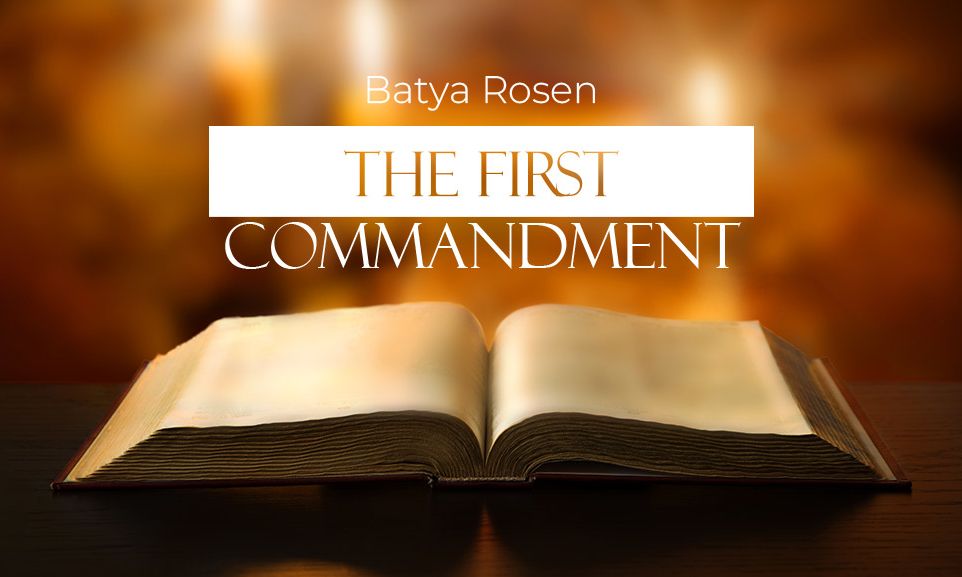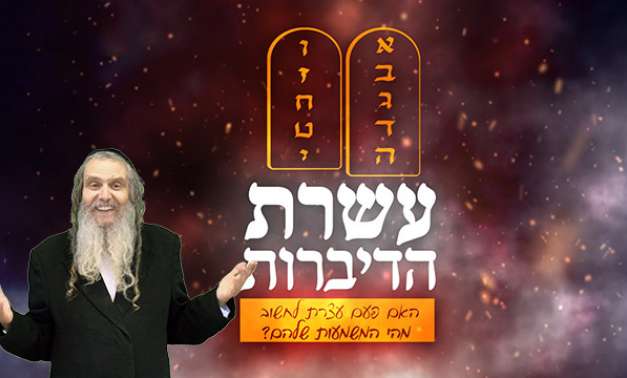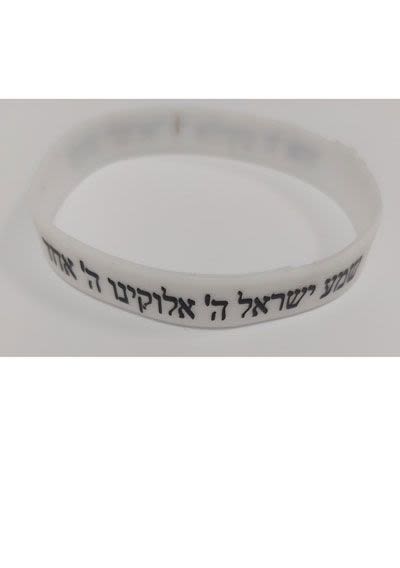
The First Commandment
The first commandment details a primary concept: Hashem is G-d – judge yourself according to His eternal rules, and not Joe’s down the street...

The holiday of Shavuot is approaching fast – every night, we count the Omer and get closer to the commemoration of Hashem giving the Torah to the Jews.
However, this isn’t just a remembrance of something that happened 3,300 years ago. The Jewish calendar is not a two-dimensional timeline; it is a 3-dimensional spiral staircase. Every month is a stair, and every year we come back to the same point in the staircase – just one story higher. Every month has a particular spiritual energy, and every day has a particular spiritual energy. This is why at the Seder, we are commanded to feel as if we were leaving Egypt ourselves – because the same spiritual energy for personal and spiritual freedom exists on every 15th of Nissan that existed on that first 15th of Nissan. The same is true for Purim – the spiritual energy of “v’na hapoch hu” – everything turning around for the best and seeing Hashem through the mask – exists every year the same as in that year back in the time of Esther.
So what is the spiritual energy that we have the ability to grasp on Shavuot? The ability to accept upon ourselves the yoke of Torah. To help us achieve this feeling, we read the about the giving of the Torah, and Hashem giving us the Ten Commandments, during the morning prayers. In fact, many people have the custom to stay up all night learning and then time their morning prayers to coincide with sunrise – the exact time the Torah was given.
However, what exactly does this phrase mean, to “accept the yoke of Torah?” Am I an ox, that Hashem puts some heavy yoke on my neck, so I can drag around this wagon called Torah and weigh me down with it? Certainly not.
To understand this concept, let’s look closer at the First Commandment: “I am the Lord Your G-d, who took you out of Egypt to be your G-d.” At first glance, this commandment seems strange – what exactly is it telling us to do? It’s a statement, not a command! Where is the “Thou shalt [not]” part?
This commandment is actually a general principle that is a foundation of keeping the rest of the Torah that Hashem then gives us. It commands us that we shall follow Hashem and hold by this Torah He is about to give us – and nothing else. “Ani Hashem Elokecha – I am the Lord your G-d.” You shall follow ME – and no one and nothing else. Don’t hold by the secular world. Don’t hold by your own desires, and warp these commandments around them. Don’t compare yourselves to the non-Jews around you. Hold by the Torah. Remember Me, remember My commandments, and be holy because I am Holy.
In the end, being Jewish and keeping the Torah isn’t about doing this “thou shalt” and abstaining from that “thou shalt not.” Don’t get me wrong – keeping every commandment that applies to you is important, and certainly the rest of the Ten Commandments follow this protocol! But every mitzvah must be taken as coming from Hashem, and absolutely binding – whether or not you fully understand, whether or not it is accepted in the world around you. Some will be easier, some will be harder – all come from Hashem, and everything He tells you to do is for your ultimate best.
The first commandment is a commandment to have a certain attitude towards the world – an attitude that there is a G-d who gave us a Torah that we must live and die by – and judge ourselves and others by. We must be able to look out at the world, and say “this is right” and “this is wrong” – not based on the morality of the society around us, but based on the Torah.
Just because Joe Shmoe down the street owns a TV doesn’t mean that TV is OK. Just because Joe’s wife is a “football widow” doesn’t mean that a husband can tell a wife that she shouldn’t be upset when he skips out on helping out around the house to watch the big game because “hey –at least I’m not Joe.” And he certainly shouldn’t say: “Well, Joe does it! Everyone watches sports – it’s OK.” The husband may not be as bad as Joe, but that doesn’t mean the Torah says that what he’s doing is acceptable. And “everyone doing it” certainly doesn’t mean that it’s appropriate for a Jew either.
Hence, the first commandment details a primary concept: Hashem is G-d – judge yourself according to His eternal rules, and not Joe’s down the street, or the general culture around you. We must accept the Torah upon ourselves and take on the Torah’s attitudes about life, reality, etc. This is what is necessary to be a true eved Hashem – servant of Hashem. You must take upon yourself the yoke of Torah.
“Wait,” you ask. “Am I still an ox with a yoke, or not?” Don’t worry, you are not an ox. Unlike an ox, which is weighed down by the yoke, a person is brought higher by the yoke of Torah. The reality is that a person is a servant no matter what – the only question is who is the master. If the master is yourself, or the secular world, or your base desires, the yoke is heavy, and drags you into the dirt. But an eved Hashem – where Hashem is the master – is brought to holiness, to rising above the physical world and into the spiritual world. Just like the people who carried the Ark were actually lifted up by the Ark, and the Ark carried them – so too, someone who carries the yoke of Torah is actually lifted up by it.
Accepting Hashem and His Torah is a prerequisite of being a holy person and living up to our potential. If you judge yourself by Joe’s rules, then you’re reducing yourself to Joe’s level – and you stay in the dirt. But if you want to be on an elevated level and reach your full potential, you have to judge yourself from that high level – and there is no level higher than G-d’s.












Tell us what you think!
Thank you for your comment!
It will be published after approval by the Editor.